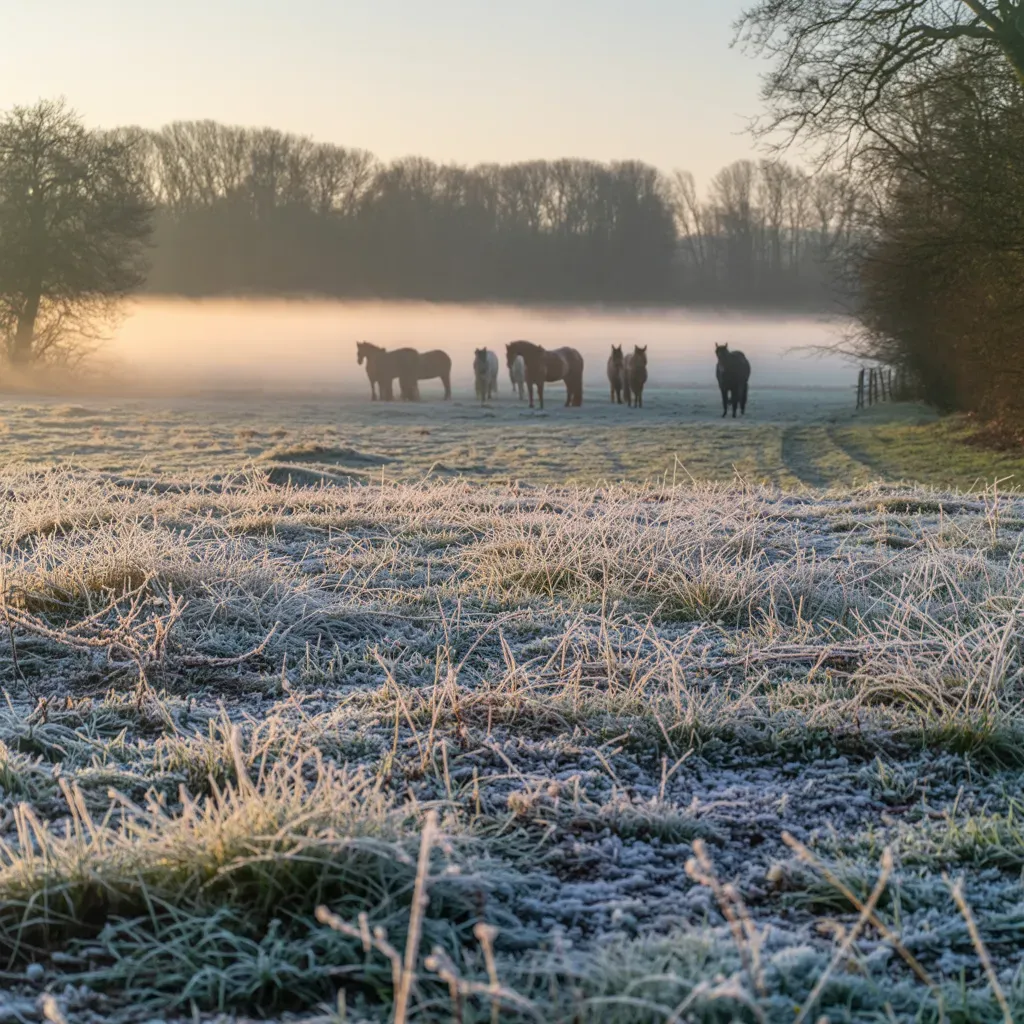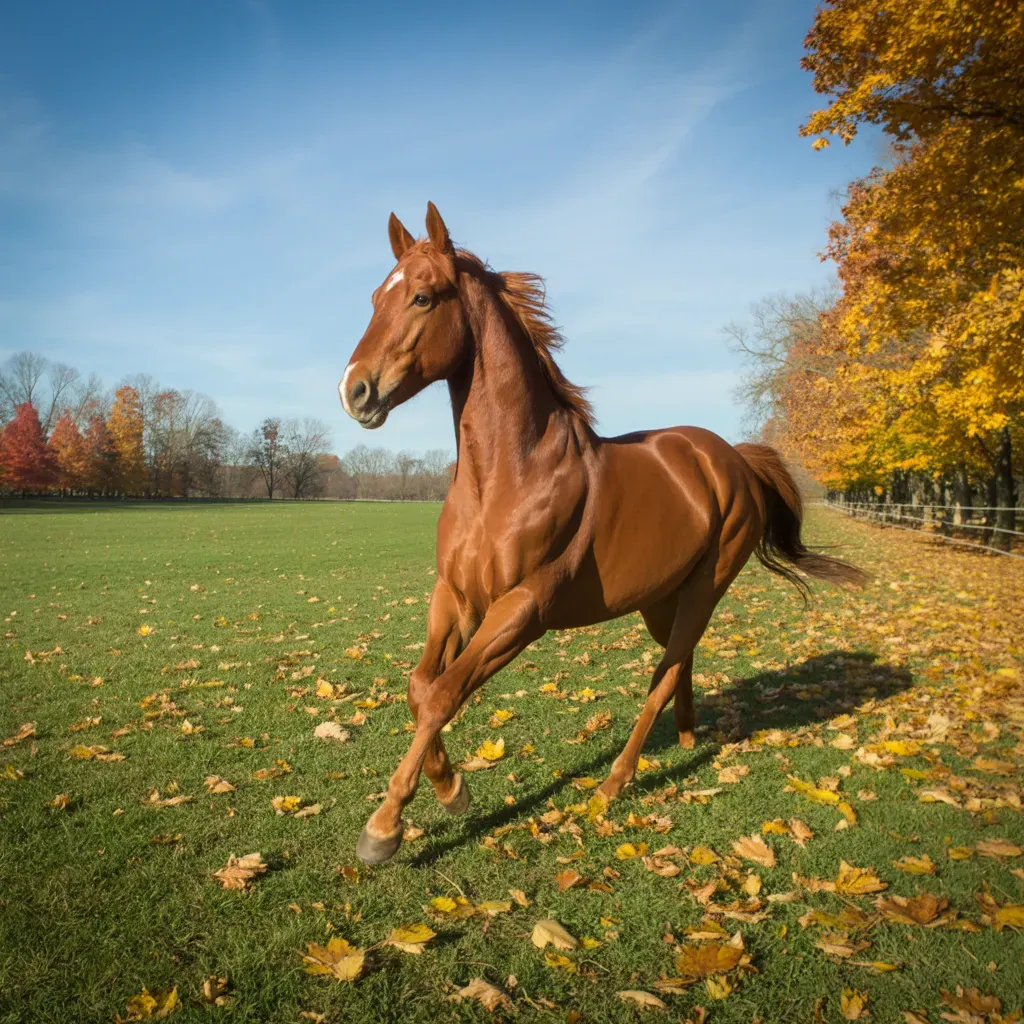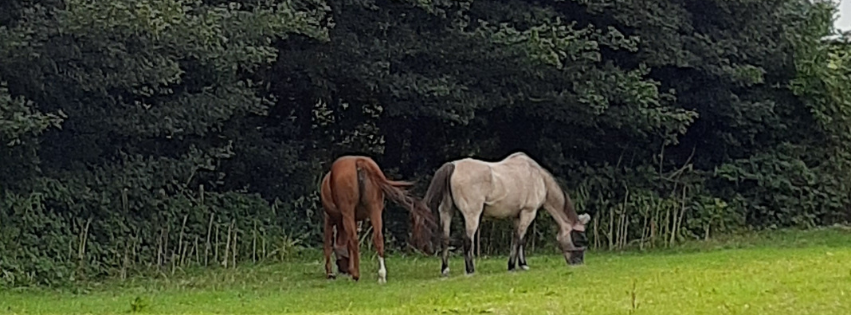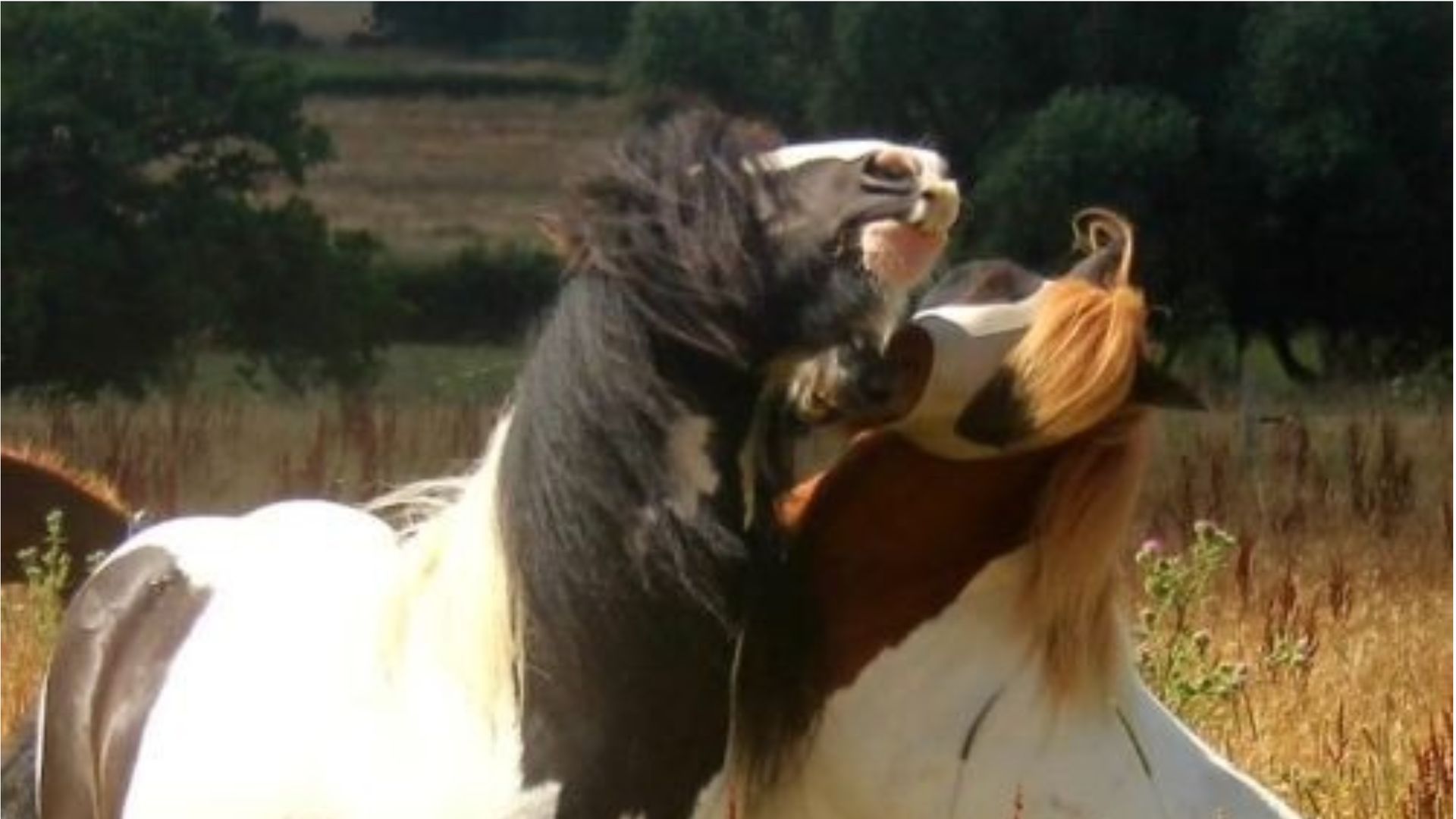Leptin Resistance - the permanently hungry horse.
Harnessing Hormones - the science behind leptin resistance.
(Leptin resistance - a condition that complicates weight management by disrupting the horse's natural appetite control mechanisms, leading to overeating and weight gain)
In the complex world of bodily functions, hormones play a pivotal role, orchestrating everything from metabolism to circadian rhythms to mood. These chemical messengers, very often underestimated, have a profound impact on one of our most basic functions: appetite.
We’re going to take a look at two of the lesser-known hormones, leptin and ghrelin, and how their critical roles regulate both hunger and fullness, and not just in our horses, but us humans too.
To put some perspective on this, have you ever wondered why, when you break out the box of chocolates, you literally can't stop eating them until the box has gone? Have you ever wondered why you can devour an entire packet of choc-chip cookies, yet you wouldn't do the same for a whole side of wild salmon?
It's not because we're weak-willed or lack self-discipline. It's not that we have no willpower. It's a biological reaction to sugar and carbs, and willpower won't work here.
Personally? I consider myself lucky - I have a savoury palate. Give me Marmite anyday, and no I don't touch sugar - we don't even keep it in the house. If we have visitors and I put the kettle on, suddenly I'm having to apologise profusely for the lack of sugar for their tea or coffee. But if husband brings home a box of Maltesers or Quality Street on a Saturday night, they're gone in one sitting. Shared, of course, but they're gone, and I'm both deliciously happy, courtesy of the massive dopamine reward hormone hit, yet horribly guilty (never mind feeling a bit ick) as it's always completely beyond my control. Sound familiar?
The overweight epidemic – it’s a hormonal perspective
Our modern world presents a paradox where, despite an abundance of food, the majority struggle with being overweight. So what’s driving our eating habits? The answer lies partly with leptin and ghrelin, two hormones that dictate when we feel hungry and when we've had enough. If their respective messages aren’t getting through, or if one is overriding the other, this will affect how appetite is regulated, triggering widespread weight issues.
This has only really been studied since the mid/late 1990s, but is very much an integal part of the IR/EMS horse and Diabetes type II human syndrome. And when it comes to our EMS horses, it's really important for us human carers to understand how and where it fits in.
First up, meet ghrelin, the ‘hunger hormone’, which is produced in the stomach, signalling the need to eat. Its levels fluctuate, peaking before meals and lessening after. On the flip side, leptin, the ‘satiety hormone’, signals fullness, which in the perfect world helps to regulate long-term body weight. However, if these signals are compromised, this leads to a perpetual state of hunger or overeating, despite the body's actual needs.
Ghrelin - the drive to eat
Ghrelin's role extends beyond simply signaling hunger; it also stimulates the release of the growth hormone from the pituitary gland, which has wide-ranging effects on energy metabolism and physical growth, i.e. height, bones and muscles. Interestingly, ghrelin levels increase not just before meals but also during periods of calorie restriction, affecting its role in long-term energy balance. Ghrelin's activity is modulated by factors such as sleep, stress, and exercise, making it a target for interventions such as dieting and promoting a healthy weight.
Leptin – the satiety instruction
Leptin, produced by adipose (fat) tissue, acts on receptors in the hypothalamus of the brain, where (sorry – science-y bit coming up …) it inhibits hunger by counteracting the effects of neuropeptide Y (a potent feeding stimulant secreted by the hypothalamus) and by stimulating the synthesis of α-MSH, an appetite suppressant. However, leptin's effectiveness can be weakened by inflammation and a diet’s fatty acid composition. Cue leptin resistance, which is what we see so often in our EMS horses.
It means that less leptin crosses the blood-brain barrier to signal satiety, so the brain thinks the body is still hungry, making our horses think they're still starving, so they continually eat despite adequate or even excessive fat stores.
Obesity - a hormonal mismatch
The discovery of leptin and ghrelin in the 1990s was a breakthrough for science in understanding obesity. It's not simply a matter of willpower; it's a complex interplay of hormones gone wonky. Leptin resistance, for instance, shows how the body ignores the signals of fullness, leading to continuous eating and weight gain. Similarly, elevated ghrelin levels, especially if stressed or sleep-deprived, makes the brain increase cravings for carbohydrates and sugars, i.e. the bad stuff.
Correcting the imbalance of leptin and ghrelin requires more than just dieting or exercising; it needs a functional approach to lifestyle changes. Dump the junk for real food, get adequate sleep, reduce stressors to lower cortisol levels (which when higher trigger more insulin release), and implement a regular exercise routine, even if it’s just walking – all foundational elements.
Equine insights
Back to our horses, and here’s breaking news – those crests and fat pads aren’t officially made of ‘fat’. Those crests are adipose tissue, formed as a result of the excess insulin/blood glucose, and are almost a separate organ in themselves, created by the endocrine (hormone) system, because the body has now become leptin resistant, a condition that complicates weight management by disrupting the horse's natural appetite control mechanisms, leading to overeating and weight gain.
So, knowing that it’s the adipose (fat) tissue cells which produce the leptin hormone, you’d be forgiven in thinking that our IR cresty equines would produce even more of the leptin’s 'stop eating' instruction to signal the body to eat less food and normalise weight. Well, you'd be right. But because our cresty metabolic/IR/Cushings horses have become leptin resistant, overridden by the brain's demand for carbs, the vital message that they’re no longer hungry isn't being heard. They're only hearing the ghrehlin hormone telling them that they're still hungry and to eat more and more.
As with all hormone issues, leptin resistance is a complex issue and as I type, probably still not fully understood in the horse-world, but there are many factors that can negatively impact leptin levels including (and I quote from esteemed sources) :
- High fructose, simple carbs and grain consumption.
- High insulin levels.
- High stress levels.
- Overeating.
Kind of obvious I know …
Thing is, we’re up against powerful biochemical mechanisms created by food addiction - willpower becomes useless when sugar is in charge of the brain chemistry. It hijacks the brain, hormones, and metabolism, and the only way to fix this is to rewire the brain. A researcher at the National Institutes of Health (NIH) actually theorises that the real regulator of a body's weight and metabolism isn’t so much the stomach but the brain chemistry - the brain can only hear the carb cravings, so we need to rewire the brain to send the opposite message and shut down that hunger, while working on reducing that crest where the adipose tissue sits. Don't panic - we go into how to do this a little further on ...
Now here's a thing. For those of us who've already been there, we already know how difficult it is to shift that crest! We know our horses are overweight and we need to do something, so thinking we're doing the right thing we restrict their feed/calories, but this doesn’t work and our cresty equines stay cresty. As Juliet Getty (Equine Nutritionist) says:
“The reason is simple . Dieting restricts calories, which lowers the metabolic rate. Weight loss may occur at first, but the body then goes into 'survival mode' and starts to hold on to fat and becomes sluggish in burning calories, making it extremely easy to put all the weight back on.”
Restricting forage is also detrimental, especially for our metabolic equines, because, as we know, the stress involved increases the stress hormone cortisol, which then induces elevated insulin, which as we know promotes the very thing we're trying to reduce - fat storage. And so we’re back where we started.
For the record, Dr Kellon says that all IR horses have leptin resistance, so there we go. Whether we like it or not, we should be factoring leptin resistance into the whole IR/EMS scenario.
Research, implications, and strategies
Recent human studies have shed light on how high-fat diets can lead to alterations in gut microbiota, which in turn impact the production and function of ghrelin and leptin. No surprise, the conclusions suggested a (very obvious) link between diet, gut, and hormonal regulation of appetite.
Furthermore, research into intermittent fasting and time-restricted feeding has revealed significant impacts on the regulation of these two hormones, offering promising avenues for managing appetite and metabolic health. Which of course, we can’t ever do with our horses. But here’s what we can do, and yes, I know it’s all obvious stuff:
- Nutritional interventions - research and anecdotal evidence shows that Acetyl L-Carnitine (Alcar) plays a significant role in managing leptin resistance, supporting more effective metabolic regulation.
- A species-appropriate fibre-rich diet will improve leptin sensitivity and reduce ghrelin levels, promoting satiety and reducing hunger, so I can’t emphasis enough how important it is to dump those feeds with bulk fillers that trigger gut sensitivities (see our ‘The Feedbowl’ page for the main offenders).
- Incorporating anti-inflammatory foods such as omega-3 fatty acids (linseed) can combat inflammation and improve hormonal signalling.
- Lifestyle – I know, I know, but you can’t dispute the science. Regular physical activity, even if it's just walking, is shown to enhance leptin sensitivity and reduce ghrelin levels. Additionally, prioritising rest/sleep and managing stress can help normalise ghrelin and leptin levels.
So let's talk a bit more about Alcar ...
The amino acid Acetyl L-Carnitine (Alcar) - the leptin resistance game changer
When I was swatting all things leptin for Murf (around 2013/14), I came across an interesting article on a forum, written by another horse owner who was also struggling. Quote:
“I read one piece of equine research (a 2004 study by Woolworth et al) ... on the specific subject of l-carnitine and leptin … which indicates that l-carnitine boosts blood concentration of leptin.”
So, more leptin hormone in the bloodstream courtesy of L-Carnitine (Alcar)? So surely a greater chance of the leptin message being heard? The author also wrote that coincidentally she saw Alcar being advertised as a potential human weight loss drug:
“The last time I spoke to a physician about this, albeit not an endocrinologist, I was given to understand that the advertisement isn't entirely spurious, so I assume there is something I'm missing about how leptin resistance works and/or about how l-carnitine works with leptin.”
Very generously, she edited her post 6-months later to say:
“Update … after 6 months of l-carnitine supplementation, leptin blood levels decreased from abnormally high to within normal range. Not a controlled experiment though.”
So to the good news - research and anecdotal evidence shows that Acetyl L-Carnitine (Alcar) plays a significant role in managing leptin resistance. By addressing leptin resistance, we can support more effective metabolic regulation.
Final thoughts - a multifaceted approach to appetite control
The Equine Metabolic Syndrome (EMS) and Insulin Resistance (IR) both highlight how modern management practices have drifted from their natural evolutionary needs, promoting leptin resistance. It’s a given that addressing these issues through diet and lifestyle adjustments is crucial for their well-being.
By understanding the science and addressing the dysregulation of leptin and ghrelin’s place in appetite control, we can look towards improved wellness for our EMS horses. It's perfectly possible to reset their biology rather than fighting against it, by adopting a functional approach that combines dietary changes, lifestyle adjustments, and, where appropriate, targeted interventions to restore hormonal balance.
Personally? I can honestly say, no word of a lie, that getting diet right and feeding Alcar to my metabolics - Murf, Cookie and MacAttack - was a game-changer. It made a profound difference to their original fat-pad, cresty state. Pro-Found. I started feeding it in 2014 and still do to this day. Our TB mare, HRH Queen Carmen, also gets it to help with her musculoskeletal issues (all explained on our Acetyl L Carnitine product page). I swear by it - even take it myself.
Now meet EquiNatural's
MetaCOMBO – a powerful 3-in-1 EMS/IR/Leptin Resistance solution, formulated with:
• DuoBute – natural anti-inflammatory
• MetaTonic – supports metabolic balance, hindgut health & hoof integrity
• Acetyl L-Carnitine – helps boost leptin sensitivity
MetaCOMBO is the go-to supplement for horses facing the challenges of leptin resistance. It’s about resetting the metabolic signals – calming the hunger cues, reducing that crest, and helping the body listen to leptin again.










